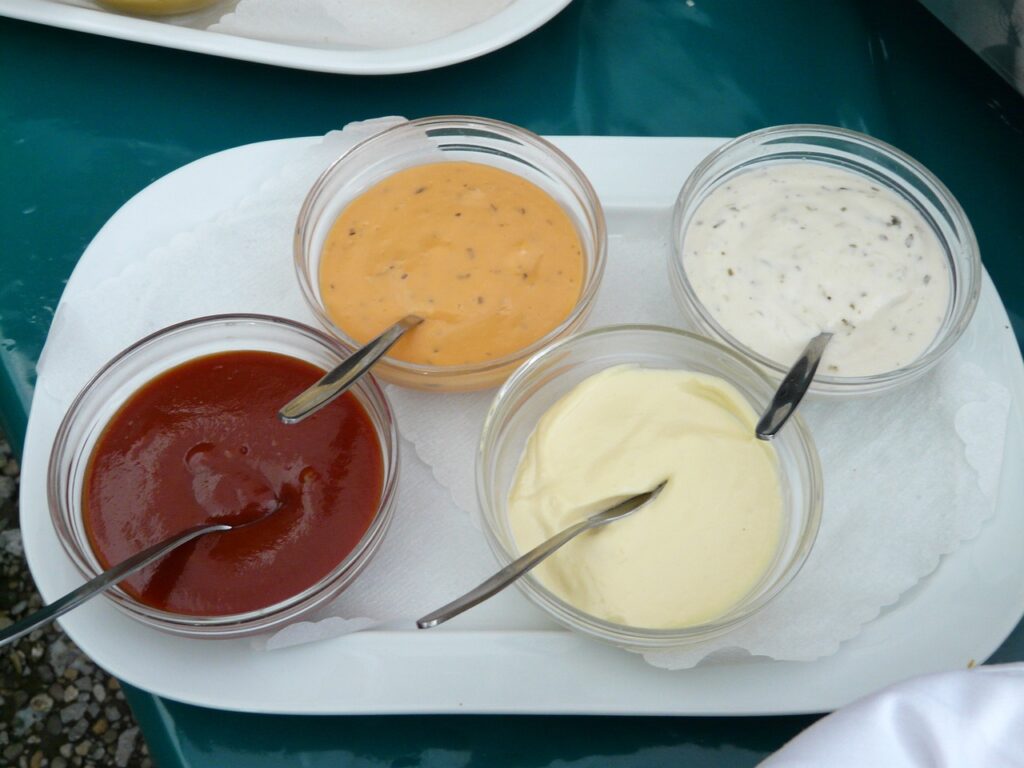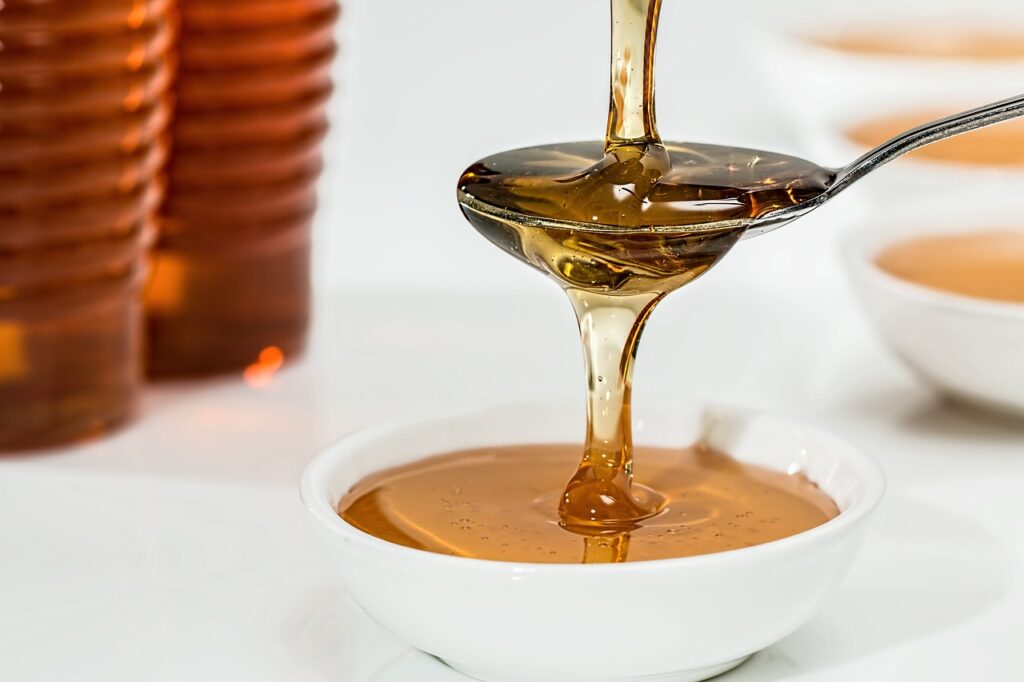In this article, we will delve into the dangers of high sugar consumption and explore healthier alternatives like sugar-free chocolates and sugar-free jelly bears. Understanding the impact of sugar on your health can help you make informed dietary choices.
JUMP TO…
Understanding Sugar and Its Types
The Hidden Sources of Sugar
Health Risks of Consuming Too Much Sugar
Benefits of Reducing Sugar Intake
Healthier Alternatives to Sugar
Tips for Reducing Sugar Intake
Understanding Sugar and Its Types
Before diving into the dangers, it’s essential to understand what sugar is. Sugar is a type of carbohydrate that the body converts into glucose to use for energy. There are different types of sugars, including:
Glucose: Found in fruits and vegetables.
Fructose: Also found in fruits, vegetables, and honey.
Sucrose: Common table sugar, a combination of glucose and fructose.
Lactose: Found in dairy products.
Maltose: Found in grains.
Each type of sugar has a different effect on the body.
For instance, glucose is quickly absorbed into the bloodstream, providing a rapid energy boost, while fructose is metabolized more slowly. Understanding these differences can help you make smarter dietary choices.
It’s also important to note that while natural sugars found in whole foods come with fiber, vitamins, and minerals, added sugars offer no nutritional benefits.
The Hidden Sources of Sugar
Sugar isn’t just in obvious sweets like candies and cakes. It lurks in many processed foods and beverages. Here are some hidden sources:
- Sauces and Dressings: Ketchup, barbecue sauce, and salad dressings often contain added sugars.
- Breads and Cereals: Many types of bread and breakfast cereals are high in sugar.
- Beverages: Soft drinks, energy drinks, and even fruit juices can contain high amounts of sugar.
- Snacks: Granola bars, flavored yogurts, and even some nuts can be loaded with sugar.

by Wouter Supardi Salari (https://unsplash.com/@supardisign)
These hidden sources can significantly increase your daily sugar intake without you even realizing it.
For example…
A single tablespoon of ketchup can contain up to one teaspoon of sugar. Similarly, a bowl of “healthy” cereal might have as much sugar as a candy bar. Being aware of these hidden sugars can help you make better food choices and reduce your overall sugar consumption.
Health Risks of Consuming Too Much Sugar
Obesity and Weight Gain
One of the most significant risks of consuming too much sugar is weight gain. High sugar intake can lead to an increase in calories without providing essential nutrients, contributing to obesity.
When you consume sugar, especially in liquid form like soft drinks, it doesn’t make you feel full, which leads to overconsumption of calories.
Additionally, sugar can affect hormones that regulate hunger and satiety, making it easier to overeat.
Increased Risk of Type 2 Diabetes
Excessive sugar consumption is linked to an increased risk of developing type 2 diabetes.
High sugar levels can lead to insulin resistance, where the body’s cells don’t respond effectively to insulin. This results in elevated blood sugar levels, which can eventually lead to diabetes.
Furthermore, the frequent spikes in blood sugar levels from high sugar intake can strain the pancreas, impairing its ability to produce insulin over time.
Heart Disease
High sugar intake is associated with an increased risk of heart disease.
Consuming too much sugar can lead to high blood pressure, inflammation, and increased levels of triglycerides, all of which are risk factors for heart disease.
Chronic high sugar consumption can also contribute to the buildup of fat in the liver, leading to non-alcoholic fatty liver disease, a condition that further increases the risk of heart disease.

by freestocks (https://unsplash.com/@freestocks)
Dental Problems
Sugar is a significant contributor to tooth decay. When sugar is consumed, it interacts with bacteria in the mouth to form acid, which erodes tooth enamel and leads to cavities. Over time, this can result in more severe dental issues, such as gum disease and tooth loss. Regular consumption of sugary foods and drinks can create a constant acidic environment in the mouth, accelerating tooth decay.
Impact on Mental Health
High sugar consumption has also been linked to mental health issues like depression and anxiety. Consuming large amounts of sugar can cause a rapid spike in blood sugar levels, followed by a crash, which can affect mood and energy levels. Chronic high sugar intake can also lead to long-te
rm changes in the brain’s reward system, making it more difficult to experience pleasure from everyday activities. This can contribute to feelings of depression and anxiety over time.
Benefits of Reducing Sugar Intake
Improved Energy Levels

Reducing sugar intake can lead to more stable energy levels. Instead of experiencing the highs and lows associated with sugar consumption, you’ll have more consistent energy throughout the day.
This can improve your productivity and overall well-being. Additionally, stable energy levels can help you maintain a more balanced mood, reducing irritability and fatigue.
Better Weight Management
Cutting back on sugar can help you manage your weight more effectively. By reducing empty calories, you can focus on consuming more nutrient-dense foods that keep you fuller for longer.
This can help you maintain a healthier weight and reduce the risk of obesity-related diseases. Moreover, lower sugar intake can improve your metabolism, making it easier to burn calories efficiently.
Enhanced Mental Clarity
Lower sugar intake can improve mental clarity and focus. Without the blood sugar spikes and crashes, your brain can function more efficiently. This can enhance your cognitive performance, making it easier to concentrate and complete tasks.
Over time, a diet low in sugar can also improve memory and reduce the risk of cognitive decline.
Healthier Skin
High sugar consumption can lead to skin problems like acne and premature aging. Reducing sugar can improve your skin’s health and appearance.
Sugar can cause inflammation in the body, which can manifest as skin issues. By cutting back on sugar, you can reduce inflammation and promote healthier, clearer skin.
Healthier Alternatives to Sugar
Consider Sugar-Free Chocolates
Sugar-free chocolates can be a good alternative to traditional chocolates if you just cant go without a sweet treat.
They are made with sugar substitutes like stevia, erythritol, or xylitol, which do not spike blood sugar levels. These chocolates can satisfy your sweet tooth without the negative health impacts of sugar. They also come in various flavors and forms, making it easy to find a sugar-free chocolate that suits your taste.
NOTE, that some sweetener substitutes may cause stomach discomfort when eaten in excess – with most things – moderation is key!
Some of our favorite stevia-sweetened chocolate treats include:
Try Out Sugar-Free Jelly Bears
Sugar-free jelly bears are another excellent alternative. Made with natural sweeteners, these treats provide the same chewy texture and delightful taste without the added sugar.
They are perfect for those looking to reduce their sugar intake without giving up their favorite snacks. These jelly bears often contain fewer calories, making them a guilt-free indulgence.
Some of our favorite stevia-sweetened gummy treats:
Natural Sweeteners
If you still want to sweeten your foods, consider natural sweeteners like honey, maple syrup, or agave nectar.
These options are less processed and offer additional nutrients compared to refined sugar. While they still contain sugar, they also provide vitamins, minerals, and antioxidants that can benefit your health.
Use them in moderation to add sweetness without the negative effects of refined sugars.
Fruits
Fruits are naturally sweet and come with the added benefit of fiber, vitamins, and minerals.
Incorporate a variety of fruits into your diet to satisfy your sweet cravings in a healthy way. Fruits like berries, apples, and bananas can be eaten on their own or added to dishes for natural sweetness. They also provide antioxidants that can help protect against chronic diseases.
TRY THIS EASY RECIPE:
- 1 cup fresh strawberries or blueberries
- Sweetleaf Chocolate Sweet Drops – 8 -15 drops, or to taste
- Mix drops and berries together to enjoy a healthier sweet chocolate berry snack!
Tips for Reducing Sugar Intake
1. Read Labels
Always check the nutritional labels of foods and beverages for added sugars.
Ingredients like high-fructose corn syrup, cane sugar, and molasses indicate added sugars. Being aware of these ingredients can help you make informed choices and avoid products with high sugar content. Look for foods labeled “no added sugar” or “sugar-free” to help reduce your intake.
2. Cook at Home
Preparing meals at home allows you to control the ingredients and reduce the amount of sugar in your diet.
Experiment with different recipes to find sugar-free or low-sugar options. Cooking at home also gives you the opportunity to use natural sweeteners and whole foods, which are healthier alternatives to processed ingredients.
Meal prepping can help ensure you have healthy, low-sugar options available throughout the week.
3. Choose Whole Foods
Focus on consuming whole foods like fruits, vegetables, whole grains, and lean proteins. These foods are naturally low in sugar and provide essential nutrients for your body.
Whole foods are also more filling, helping you avoid the temptation to snack on sugary treats. Incorporating a variety of whole foods into your diet can improve your overall health and reduce the risk of chronic diseases.
4. Stay Hydrated
Sometimes, thirst can be mistaken for hunger or a sugar craving.
Drink plenty of water throughout the day to stay hydrated and reduce the urge for sugary snacks. Staying hydrated can also help improve your energy levels and overall well-being.
Consider drinking herbal teas or infused water as a tasty, sugar-free alternative to sugary beverages.

by Mineragua Sparkling Water (https://unsplash.com/@mineragua)
Conclusion
Consuming too much sugar poses significant risks to your health, including obesity, diabetes, heart disease, dental problems, and mental health issues.
By understanding the hidden sources of sugar and making conscious choices to reduce your intake, you can improve your overall health and well-being. Consider healthier alternatives like sugar-free chocolates and sugar-free jelly bears to satisfy your sweet cravings without the negative impacts of sugar.
By taking these steps, you can lead a healthier life and enjoy the benefits of reduced sugar consumption. Make small, manageable changes to your diet and lifestyle to gradually reduce your sugar intake. Over time, these changes can lead to significant improvements in your health and quality of life.


